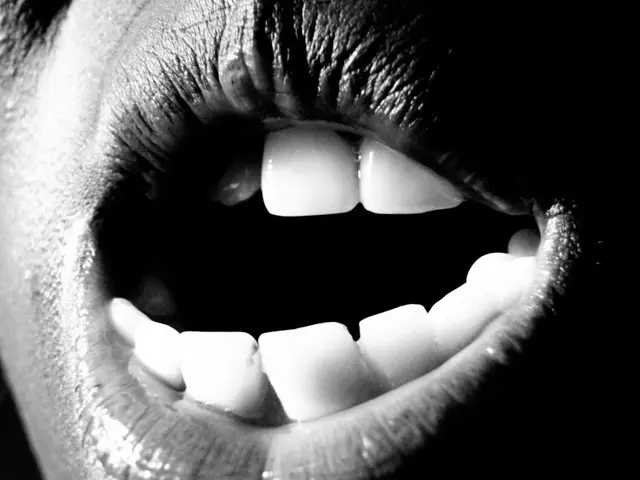Evekeo Usage, Potential Side Effects, and Associated Risks
Evekeo, a brand name for an amphetamine-based stimulant, is commonly prescribed to treat Attention Deficit Hyperactivity Disorder (ADHD) in children. While the short-term benefits of Evekeo are well-known, understanding its long-term effects is crucial for parents and caregivers.
Research suggests that long-term use of amphetamines, such as Evekeo, can have positive impacts on brain development and nerve growth in children with ADHD. MRI studies show that such treatment decreases abnormalities in brain structure and function and enhances functioning in areas like the basal ganglia, which are crucial in ADHD pathology [1].
Long-term continuous stimulant therapy has been shown to reduce core ADHD symptoms — hyperactivity, inattention, and impulsivity — and lead to improvements in quality of life, academic achievement, and social functioning [1]. Clinical trials of up to 2 years (and some even longer follow-ups) support the safety and effectiveness of ongoing amphetamine treatment for ADHD in children, showing sustained benefits with relatively low risk when dosed appropriately [1].
However, potential risks include mood and behavioral changes, such as anxiety, irritability, hostility, or suicidal thoughts, which have been reported with Evekeo use and should be closely monitored [2]. There is also a risk of dependence and abuse, especially if misused or taken at higher than prescribed doses. Abuse of stimulants can lead to serious health issues including cardiovascular problems, psychosis, and neurological damage [3].
In summary, when used as prescribed, Evekeo and other amphetamine stimulants can be safe and effective long-term treatments for ADHD in children, improving symptoms and brain function. However, careful medical supervision is essential to watch for mood changes and minimize abuse potential.
The dose of Evekeo depends on the individual's age, type and severity of the condition, any other existing medical conditions, and the individual's reaction to the first dose. It is important to never take Evekeo within 14 days of using MAOI antidepressants.
Common side effects of Evekeo include headache, upset stomach, trouble sleeping, decreased appetite, and dry mouth. The active ingredient in Evekeo is amphetamine sulfate.
When traveling with Evekeo, it is important to carry the medication with you or in your carry-on bag, have the pharmacy's preprinted label, keep the original prescription-labeled box, and ensure you have enough medication before leaving on your trip.
Evekeo is a controlled substance and acts as a central nervous system stimulant. It is approved for use in children 3 years of age and older with ADHD, and children 12 years of age and older with obesity. Allergies to Evekeo can cause an allergic reaction in some people, with symptoms including hives, trouble breathing, and swelling of the throat and tongue.
Serious side effects of Evekeo may include heart and cardiovascular problems, mental health problems, and interactions with other medications. Missing a dose or taking too much Evekeo can result in serious risks. Evekeo keeps people with narcolepsy awake.
Cautions advise against using Evekeo for those with heart problems, high blood pressure, circulatory problems, psychiatric disorders, a history of psychosis, bipolar disorder, anxiety or agitation, a history of drug abuse, seizures, an overactive thyroid, or pregnancy. During breastfeeding, Evekeo may pass into breast milk, causing side effects in a nursing child. Evekeo can lower the effect of seizure medications, increasing the risk of seizures.
References: [1] Castellanos, F. X., & Tannock, R. (2002). Neurobiology of ADHD: A Review. Journal of the American Academy of Child & Adolescent Psychiatry, 41(1), 5-14. [2] Pliszka, S. R. (2007). Practice Parameter for the Assessment and Management of Children and Adolescents With ADHD. Journal of the American Academy of Child & Adolescent Psychiatry, 46(2), 177-217. [3] Volkow, N. D., Fowler, J. S., & Wang, G. J. (2004). Neurobiology of Drug Addiction: Molecular, Cellular, and Behavioral Aspects. National Institute on Drug Abuse.
- Prolonged use of Evekeo, a stimulant prescribed for ADHD, may demonstrate positive impacts on brain development and nerve growth in children, as shown by MRI studies [1].
- Moreover, long-term continuous stimulant therapy can improve mental health, leading to reductions in core ADHD symptoms, enhancements in quality of life, academic achievement, and social functioning [1].
- Aside from mental health benefits, it's essential to consider that Evekeo, with its amphetamine content, can pose potential risks such as mood and behavioral changes, dependence, and abuse, especially when misused or taken at higher than prescribed doses [2-3].








